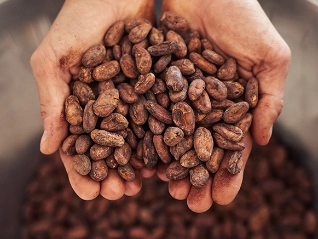
Atradius Economic Outlook: Saved by the AI boom

Pressure on Fed independence sparks backlash, flagging global risks

Atradius Earns Best Trade Credit Underwriter at the 2026 TTP Awards Gala

Key benefits of credit insurance for SMEs

Tariff-related economic uncertainty still weighs on commercial construction activity


Accelerating AI demand drives one of world’s fastest-growing industries

Asia drives pharma growth, although outlook for all regions remains healthy

Discover how the global economy is navigating trade tensions and uncertainty, with AI investment driving resilience and shaping growth prospects for 2026 and beyond

Industry growth slows as global trade applies the brakes

US tariffs, geopolitics and lower demand trigger a contraction of global automotive production in 2026

Tari...
Viewing 7 out of 201
An investigation involving Fed chairman Powell may weaken trust in US monetary policy, adding global headwinds and...


From energy markets to supply chains, Washington’s assertive moves are redefining sovereignty norms and...

Our Q1 of 2026 Industries Forecast per Market provides business performance and credit risk...

Tariffs and tight margins are...

Trade tensions, AI investment and geopolitical shifts dominate the global trade agenda. The key takeaway: business must...

The US President’s latest tariff threat exposes the weaponised interdependence that has become a flashpoint for...

Navigating global payment risk in a year of rising insolvencies and shifting customer behaviour
Viewing 7 out of 229
Trade credit insurance is far more than a safety net—it’s a strategic tool for SMEs.


Cultural variables shape payment behavior, negotiation patterns and risk outcomes in cross‑border trade

Understanding what drives credit insurance costs gives businesses valuable insight into risk, so they can trade with confidence in any...

Longevity isn’t about nostalgia. It’s about resilience, adaptability, and purpose. Here’s why...

Smart strategies to protect cash flow, strengthen client relationships, and ensure invoices are paid on time...

Companies face credit risk when delivering goods without upfront payment, but with customised work this risk begins sooner

Find out the common late payment excuses and how to respond to safeguard your business's cash flow and...
Viewing 7 out of 36
BVV GmbH grew internationally and recognised risks such as companies on the brink of insolvency in plenty of time to mitigate the...


Atradius Surety has enabled Vinci Construction France to expand their sources of finance beyond their...

Incorporating a risk management strategy for business opportunities with Linnea’s

How we are part of Continental Banden Groep B.V.'s business process, minimising risk and supporting sales


With the backing of Atradius’s resources, EnCom Polymers has been able to expand business with existing customers and go...

Providing comprehensive support and ongoing credit monitoring for Legrand AV
Viewing 7 out of 11
Case study
Metalco Inc.: Driving new business with quick communication
Ben Green, President and Owner at Metalco Incorporated in Chicago, Illinois, explains how Atradius Trade Credit Insurance has helped him secure new business confidently.
Read more



































